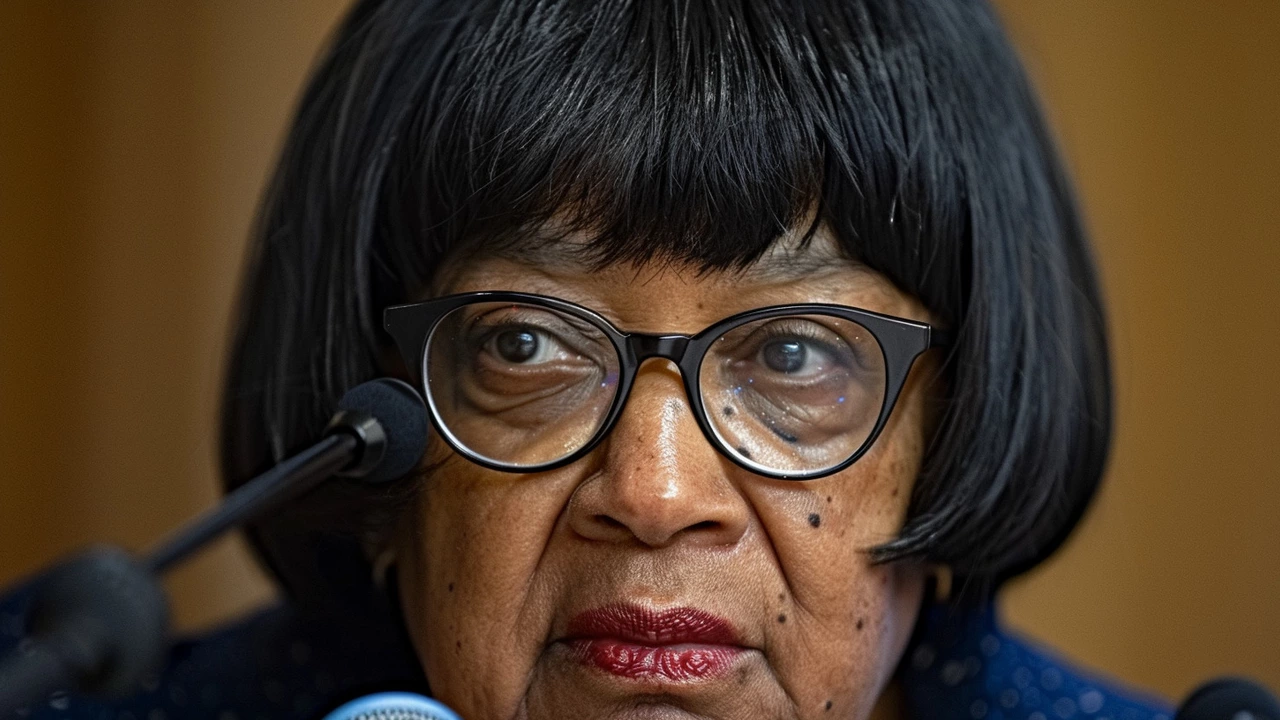
Diane Abbott's Return to the Labour Party: A Controversial Journey
Diane Abbott, a prominent figure in British politics and the first Black woman elected to the UK Parliament, often found herself at the center of both admiration and controversy. Her recent reinstatement as a Labour MP follows a tumultuous period sparked by her comments on racism. Abbott's suspension in April 2023 stemmed from a statement she made, suggesting that Jewish, Irish, and Traveller communities do not experience the same lifelong racism as people of color. These remarks, deemed insensitive and controversial, led to significant backlash and her subsequent suspension.
The backlash was swift, with many accusing Abbott of undermining the struggles of these ethnic groups. Abbott, known for her outspoken nature and advocacy, quickly recognized the impact of her words. In a letter to the Observer, she issued a retraction and a heartfelt apology, acknowledging that her comments were poorly phrased and lacked the necessary sensitivity. Yet, the damage was done, and the Labour Party launched an investigation that lasted over eight months.
The Labour Party's Investigation
The Labour Party's internal investigation into Diane Abbott's comments began in November 2022, long before the public outcry. This initiative reflected the party's commitment to addressing issues of racism and ensuring that all members uphold its core values. The investigation was thorough, involving multiple interviews and assessments to determine the extent of Abbott's remarks and their impact on the party's reputation.
The process was not without its challenges. Many within the party felt conflicted, balancing their respect for Abbott's long-standing contributions against the severity of her comments. The investigation concluded in December 2023 with a decision that, while reinstating Abbott, did not guarantee her candidacy for the next general election. This decision highlights the Labour Party's ongoing struggle with internal divisions and the complexities of handling sensitive issues of race and ethnicity within its ranks.
Abbott's Apology and Public Reaction
In the wake of the controversy, Abbott's apology played a crucial role in her reinstatement. Addressing the issue head-on, she expressed regret for her words and outlined her commitment to learning from the incident. This proactive approach helped to mitigate some of the backlash and demonstrated her willingness to engage with the affected communities.
Public reaction to Abbott's reinstatement has been mixed. Her supporters argue that everyone deserves a second chance and that her decades of service should not be overshadowed by a single misstep. Critics, however, remain skeptical, questioning whether her apology was enough to heal the wounds caused by her remarks. The incident has also reopened discussions about racism within the UK and the Labour Party's role in addressing these issues.
The Future of Diane Abbott in Politics
As Diane Abbott returns to her role as a Labour MP, the question of her future in politics looms large. While she has been reinstated, it remains uncertain whether she will contest the upcoming general election. Party officials have been in negotiations, attempting to broker a deal that would see Abbott regain the Labour whip in exchange for stepping down from her long-held position as MP for Hackney North and Stoke Newington.
This potential arrangement reflects the party's strategic considerations ahead of the general election. Abbott's continued presence could either bolster the party's appeal among her loyal supporters or alienate voters still unsettled by her remarks. The outcome of these negotiations will be crucial in determining the Labour Party's broader strategy and its commitment to tackling issues of racism and inclusion.
The Broader Implications
Diane Abbott's case has broader implications for British politics and the Labour Party's approach to diversity and inclusion. The controversy has sparked renewed debates about the party's handling of race-related issues and its ability to foster a truly inclusive environment. Abbott's reinstatement, combined with the party's ongoing efforts to address internal divisions, signifies a pivotal moment in its evolution.
For many, Abbott's return is a reminder of the progress that still needs to be made. It underscores the importance of continuous dialogue and education on issues of race and ethnicity, both within political parties and in society at large. As the Labour Party navigates these challenges, its actions will be closely watched, setting a precedent for how political institutions can address and heal from internal conflicts.
In conclusion, Diane Abbott's reinstatement as a Labour MP marks a significant chapter in her political career and the broader landscape of British politics. Her journey, characterized by both achievements and controversies, reflects the complex realities of public service and the ongoing struggle for racial equality. As the Labour Party moves forward, the lessons learned from this incident will undoubtedly shape its future policies and approach to inclusion.